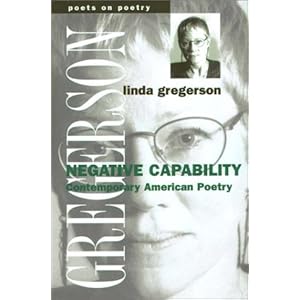I have abandoned the dream kitchens for a low fire
and a prescriptive literature of the spirit;
a storm snores on the desolate sea.
The nearest shop is four miles away –
when I walk there through the shambles
of the morning for tea and firelighters
the mountain paces me in a snow-lit silence.
That’s the beginning of Derek Mahon’s ‘The Mayo Tao’, a favourite poem. I love the way he both embraces the experience and stands self-mockingly outside it; and the delight in language, the lines rolling out like sea and mountain (but contrasting clipped ‘i’s in line 2). Later on, he listens to the ‘sob story’ of a stone in the road ‘for months’, which as well as being funny makes you think of the history Irish roads have seen. Then there’s the instant conjuring-up of the outside world in ‘dream kitchens’, which brings to mind those Irish haciendas and colonnades of the 80s and 90s. Isn’t there an Irish song about them?
And there’s the last line quoted above, which conveys exactly how a mountain is when you walk below and alongside it – it really does pace you like a silent companion. The photo below is taken from near the summit of Blaven on Skye: Glen Sligachan, the long, long valley in the background, is a place where the mountains do that.
I'd have used an Irish one, but my Irish photos are all pre-digital. There isn’t any rain in The Mayo Tao, despite its Irishness. No rain: the dryness of March goes back as far as the Canterbury Tales’ opening two lines –
When that Aprill with his shoures soote
The droghte of March hath perced to the roote..
According to the note in the Riverside Chaucer, the ‘droghte’ of March ‘has been attributed to literary convention but is a fact… a dry March, necessary for sowing, promised a good crop’.
It was wishing I was still in Suffolk that took me back to the Mayo Tao.
Here is the view from my window at Bruisyard Hall, where we stayed for the Poetry Trust seminar. There was a windowsill big enough to sit in, and a rookery (dead poets heckling?) in the trees on the left. The weather was like this most of the time, dry but misty; and the drive looked like this, empty, except for us in ones or twos going for a run or a walk, or (Michael Laskey) a bike ride.
Michael gave us The House by Richard Wilbur in one of the workshops – for its craft, space and effortlessness, and as an example of how a poet can write and write until at last the ego goes away. Some of that writing and writing happened at Bruisyard Hall. It’s a shame that this, and the perceived need to promote oneself to get published etc, seem to lie at opposite poles of states of mind.
The week after the seminar I visited the Poetry Trust in their eyrie at the top of The Cut, Halesworth’s old maltings converted into a cultural centre. There are some nice Suffolk towns and Halesworth must be one of the best – a railway station, a Wednesday market, The Cut, two bookshops, pubs, a river, the sea not far off, and poetry with a birds-eye view of everything. All it lacks is a mountain…
 |
| Blythburgh marshes: angels in church, horizon left |
I also hope Halesworth doesn’t lose the Poetry Trust, which today lost its Arts Council grant, about one-third of its income… Unthinkable that we could do without the Aldeburgh Poetry Festival, the lovely website, the Poetry Channel, the Poetry Paper, the outreach work, all delivered by a handful of dedicated people. I suspect that the Poetry Trust has developed organically, doing what work it sees is good, rather than conforming to logical frameworks or external criteria. Arts bureaucrats may not like that, but surely it’s what arts organisations should be free to do, without fear of falling. Are there any rich, poetry-loving philanthropists out there, please?





